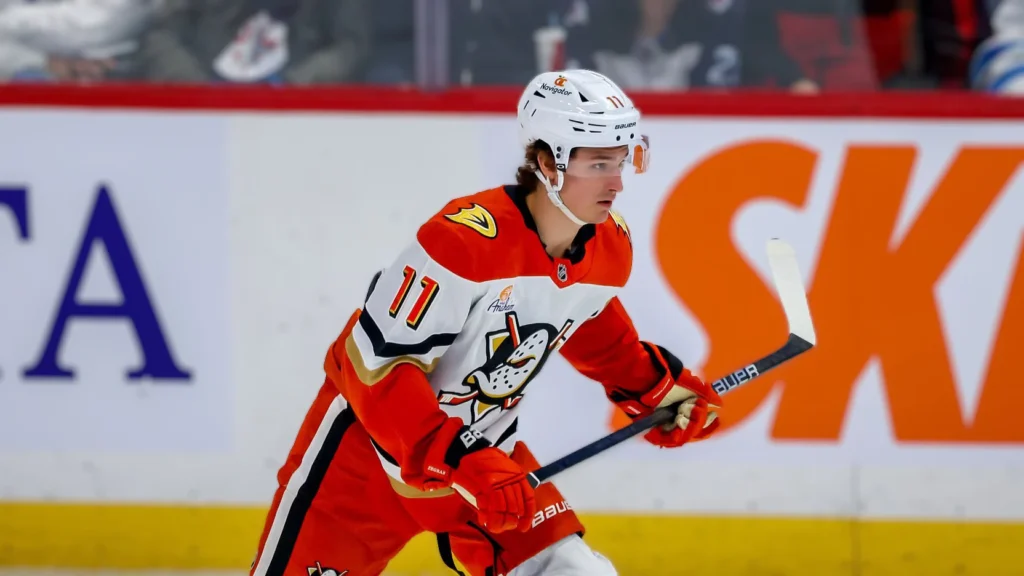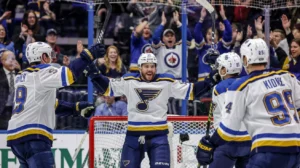
The hockey world is buzzing. After months of speculation, the Anaheim Ducks have finally dealt their dazzling, yet at times enigmatic, forward Trevor Zegras to the Philadelphia Flyers. This isn’t just another roster shuffle; it’s a seismic shift that sends ripples through both organizations and ignites a passionate debate among analysts and fans alike, demanding immediate NHL trade grades.
The specifics of the deal see the Philadelphia Flyers acquiring Zegras for center Ryan Poehling, a 2025 second-round pick (45th overall), and a 2026 fourth-round pick. On paper, it’s a classic “buy-low, high-reward” scenario for the Flyers, while the Anaheim Ducks opt for cap flexibility, defensive stability, and future draft capital. But who truly “won” this blockbuster? Let’s break it down.
Flyers’ Report Card: A Bold Bet on Untapped Potential
For the Flyers, this Trevor Zegras trade represents a decisive step in their ongoing rebuild. General Manager Danny Brière, who has patiently amassed a wealth of draft picks, finally pulled the trigger on a significant acquisition of top-six talent. Zegras, a former 9th overall pick in 2019, burst onto the scene with back-to-back 60+ point seasons (61 points in 2021-22, 65 points in 2022-23), showcasing audacious skill and highlight-reel creativity. He’s the kind of dynamic playmaker the Flyers have sorely lacked.
The immediate question for Philadelphia is where Zegras fits. He’s expressed a desire to play center, a position the Flyers desperately need to solidify. While his faceoff numbers and defensive consistency at center have been questioned in the past, the Flyers are clearly betting on his offensive upside and the potential synergy with young phenom Matvei Michkov. Imagine Zegras’s vision and passing feeding Michkov’s lethal shot – a tantalizing prospect for the Orange and Black faithful.
Furthermore, Zegras has the potential to dramatically improve a Flyers power play that has struggled immensely. His past success with the man advantage suggests he could be a critical piece in unlocking that unit’s potential. Given that Philadelphia did not surrender a first-round pick – a testament to Brière’s shrewd asset management – this move appears to be a calculated, rather than desperate, gamble. If Zegras can recapture his Calder Trophy-runner-up form, this NHL trade could be an absolute steal.
Flyers’ Grade: B+ – High risk, incredibly high reward. They acquired a top-tier talent for a manageable package, addressing a glaring need at center and adding significant offensive firepower.
Ducks’ Report Card: A Calculated Pivot
On the other side of the ledger, the Anaheim Ducks are signalling a clear shift in their organizational philosophy. General Manager Pat Verbeek has been candid about his desire for players who complement each other and fit specific roles. With the emergence of young centers like Leo Carlsson and Mason McTavish, and the recent acquisition of veteran winger Chris Kreider, Zegras’s fit in Anaheim became increasingly complicated.
The Ducks receive Ryan Poehling, a responsible, defensively-minded forward who excels on the penalty kill and provides solid bottom-six depth. He’s also on a cap-friendly deal. Alongside Poehling, the Ducks gain a 2025 second-round pick and a 2026 fourth-round pick, adding to their already robust pool of draft assets.
While some Ducks fans may lament the departure of a charismatic, fan-favorite player with immense skill, Verbeek’s rationale is clear: he prioritized structure, cap flexibility, and a specific player profile over raw, at times inconsistent, talent. The argument could be made that the Ducks “distressed” the asset, potentially lowering Zegras’s trade value due to his recent injuries and reported interpersonal dynamics. However, securing a good defensive forward and future draft picks allows them to continue shaping their roster under new head coach Joel Quenneville’s vision. This trade may indicate a focus on a more defensively sound, structured approach as they look to end their prolonged playoff drought.
Ducks’ Grade: B- – They didn’t get a king’s ransom, but they addressed internal fit issues, gained cap flexibility, and acquired useful assets for a player who, despite his talent, wasn’t perfectly aligned with their evolving rebuild.
The Road Ahead
The ultimate success of this Trevor Zegras trade will be judged by time. For the Flyers, it’s about whether new coach Rick Tocchet can unlock Zegras’s full potential, help him refine his two-way game, and integrate him seamlessly into a burgeoning young core. If Zegras becomes the dynamic, consistent center the Flyers envision, this deal will be lauded for years.
For the Ducks, the return on investment from Poehling and the draft picks, coupled with the continued development of their existing young stars, will determine the long-term impact. This NHL trade marks a fresh start for Zegras and a new chapter for both franchises. The anticipation for the upcoming season, particularly in Philadelphia, just went through the roof.

